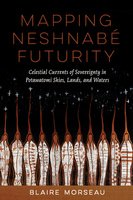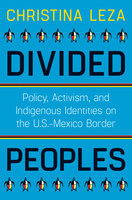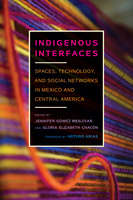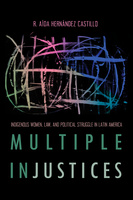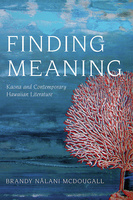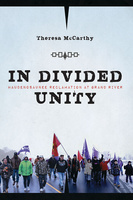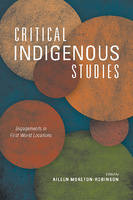Mapping Neshnabé Futurity
Celestial Currents of Sovereignty in Potawatomi Skies, Lands, and Waters
Mapping Neshnabé Futurity is an essential read that offers a rethinking of how we conceive of futurity and sovereignty. Morseau’s interdisciplinary approach, blending anthropological research with literary critique, shows how counter-mapping projects both on the ground and in the skies reclaim space in the Great Lakes region—Neshnabé homelands—and are part of Anishinaabé/Neshnabé communities’ constellations of Indigenous futurities and stories of survivance.
From the Skin
Defending Indigenous Nations Using Theory and Praxis
Navigating CHamoru Poetry
Indigeneity, Aesthetics, and Decolonization
Divided Peoples
Policy, Activism, and Indigenous Identities on the U.S.-Mexico Border
La Raza Cosmética
Beauty, Identity, and Settler Colonialism in Postrevolutionary Mexico
Girl of New Zealand
Colonial Optics in Aotearoa
Spiral to the Stars
Mvskoke Tools of Futurity
Indigenous Interfaces
Spaces, Technology, and Social Networks in Mexico and Central America
Transcontinental Dialogues
Activist Alliances with Indigenous Peoples of Canada, Mexico, and Australia
Multiple InJustices
Indigenous Women, Law, and Political Struggle in Latin America
Finding Meaning
Kaona and Contemporary Hawaiian Literature
The first extensive study of contemporary Hawaiian literature, Finding Meaning examines kaona, the practice of hiding and finding meaning, for its profound connectivity. Through kaona, author Brandy Nalani McDougall affirms the tremendous power of Indigenous stories and genealogies to give lasting meaning to decolonization movements.
In Divided Unity
Haudenosaunee Reclamation at Grand River
Staking Claim
Settler Colonialism and Racialization in Hawai'i
Navajo Sovereignty
Understandings and Visions of the Diné People
A companion to Diné Perspectives: Revitalizing and Reclaiming Navajo Thought, each chapter of Navajo Sovereignty offers the contributors’ individual perspectives. This book discusses Western law’s view of Diné sovereignty, research, activism, creativity, and community, and Navajo sovereignty in traditional education. Above all, Lloyd L. Lee and the contributing scholars and community members call for the rethinking of Navajo sovereignty in a way more rooted in Navajo beliefs, culture, and values.

